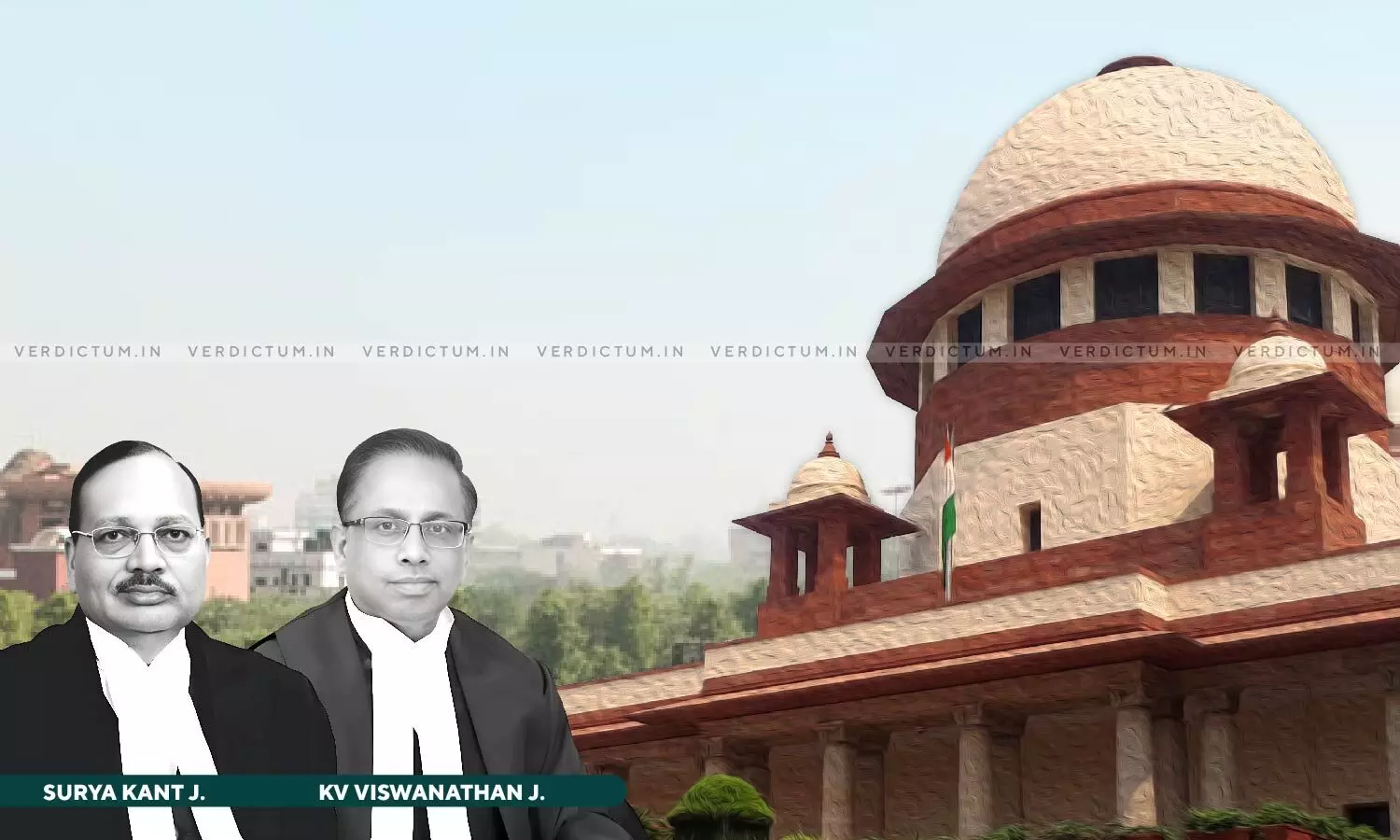
Supreme Court Transfers PIL Challenging Muslim Personal Law (Shariat) Application Act, 1937 From Allahabad HC To Itself
 |
|The Supreme Court, today, transferred to itself a Public Interest Litigation pending before the Allahabad High Court challenging the validity of the Muslim Personal (Shariat) Application Act, 1937 and Section 494 IPC.
A transfer petition was filed by the Union of India seeking the transfer of the PIL from the High Court of Allahabad to the Supreme Court on the ground that identical issues are pending before the Constitution Bench of 5-judges in the matter of Ashwini Kumar Upadhyay vs. Union Of India.
The Bench of Justice Surya Kant and Justice K.V. Viswanathan at the outset asked why the cause title mentions "Union of Bharat" instead of the usual "Union of India", only to realise that the cause title as framed by the petitioner before the High Court has been adopted in the present case before the Apex Court.
The Court said in its Order, “The transfer of the above-listed Writ Petition is sought on the ground that identical issues are pending before the Constitution Bench of this Court in Writ Petition 202 of 2018. Notice was issued and service was also complete. Respondent-Board has not entered the appearance…it seems that the issues which have been raised in the High Court in the above-mentioned Writ Petition are broadly under consideration before the Constitution Bench in WP No. 202 of 2018. Consequently, we deem it appropriate to transfer the Writ Petition… to this Court and tag it with the Writ Petition No. 202 of 2018".
The Supreme Court issued the notice in the matter on November 11, 2023 and had stayed the proceedings before the High Court.
In the main matter (Writ Petition No. 202 of 2018), the Supreme Court had said that it would set up a fresh five-judge Constitution bench at an "appropriate stage" to hear pleas challenging the constitutional validity of polygamy and 'nikah halala' among Muslims.
A bench comprising Chief Justice DY Chandrachud, Justice PS Narasimha, and Justice JB Pardiwala was urged by lawyer Ashwini Upadhyay, who had filed a PIL on the issue, that Section 494 of the Indian Penal Code allows polygamy, halala etc. and needs to be struck down.
"I will consider it. At an appropriate stage, I will constitute a constitution bench," the CJI had responded.
On August 30 last year, a five-judge bench comprising Justices Indira Banerjee, Hemant Gupta, Surya Kant, M M Sundresh and Sudhanshu Dhulia had made the National Human Rights Commission (NHRC), National Commission for Women (NCW) and the National Commission for Minorities (NCM) parties to the PILs and sought their responses.
Upadhyay, in his PIL, had sought a direction to declare polygamy and 'nikah halala' unconstitutional and illegal. While polygamy allows a Muslim man to have four wives, 'nikah halala' deals with the process in which a Muslim woman, who wants to re-marry her husband after divorce, has to first marry another person and get a divorce from him after the consummation.
Cause Title: Union Of Bharat v. Hindu Personal Law Board & Anr.